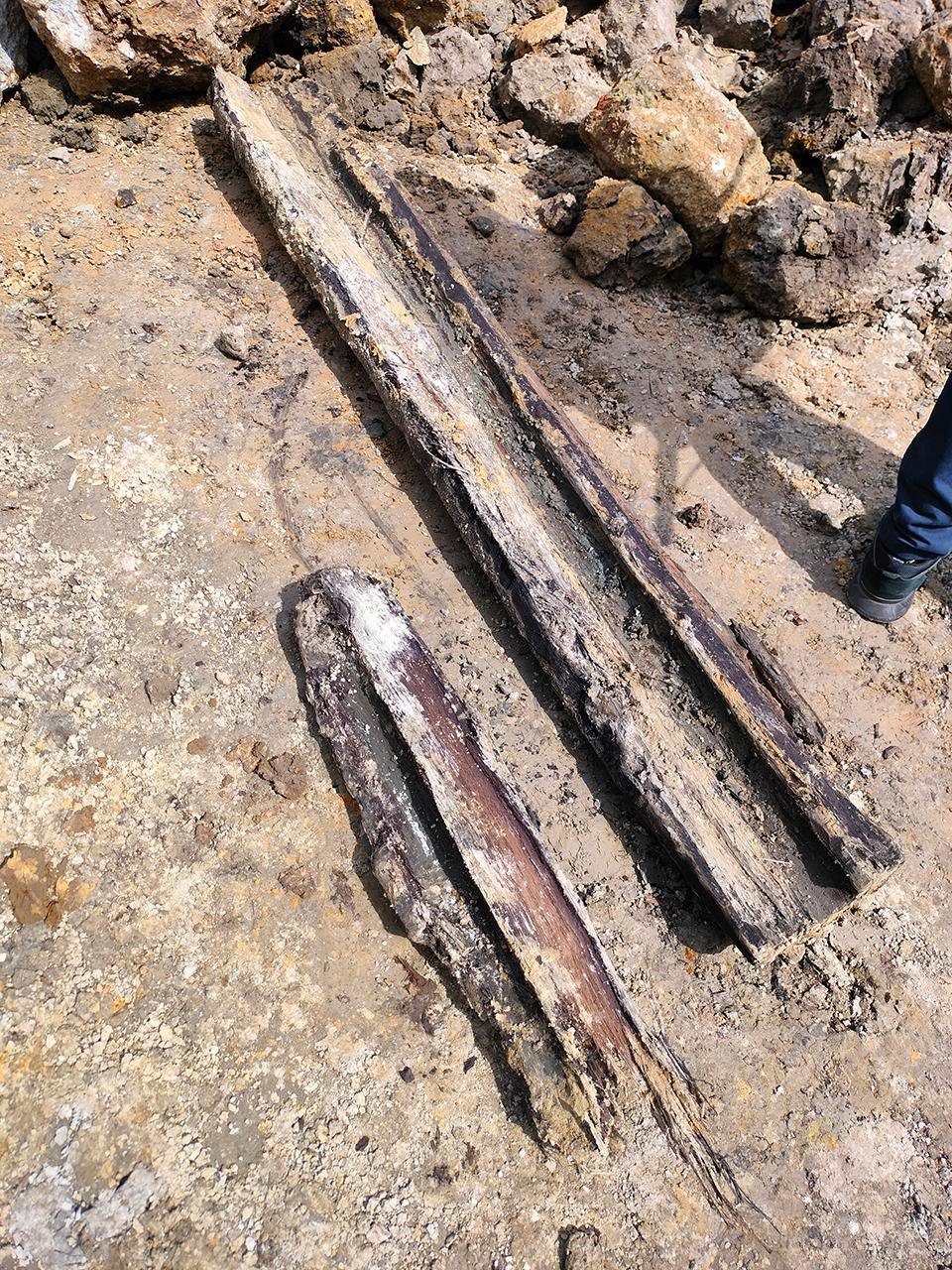In a rare discovery, archaeologists working in Leuven, Belgium, unearthed a Roman-era wooden water pipe that was remarkably preserved from the Roman imperial period, dating back between the 1st and 3rd centuries CE.

The find, described by the city council as “unique and exceptional,” was discovered during routine excavations for a new residence project for students on Brusselsestraat.
The pipe, located some 13 feet beneath today’s street level, is between 65 and 100 feet in length and consists of hollowed tree trunks, roughly six feet long each. It’s the first time a complete Roman wooden water pipe has been unearthed in the Flanders region.

While traces of such pipes had previously been unearthed in other cities like Tienen and Tongeren, the wooden pipes themselves had long since decayed—except for this one.
The preservation of the pipe is thanks to the marshy, anaerobic soil in the Dyle (Dijle) River valley, which has conserved the timber by isolating it from oxygen and microbial activity for nearly 2,000 years.

Archaeologists were also surprised by surface evidence on the pipe of what appears to be remnants of a Roman pumping installation, suggesting a more advanced system of water management than had ever previously been supposed at a location such as Leuven.
Leuven at this time was a small settlement—a diverticulum—situated at a strategic crossroads near a Roman military road which connected to the Via Belgica, the major road from Cologne to Boulogne-sur-Mer.

“Although the size of Leuven in Roman times was limited, finds like this prove that the Roman presence here was certainly not incidental,” said Dirk Vansina, councillor for Public Works.
Future steps involve transferring the pipe to a conservation lab for dendrochronological analysis—tree-ring dating to obtain a more precise age. The pipe will then be freeze-dried to keep it safe for the long term, with hopes of putting it on display someday.
More information: City of Leuven


















